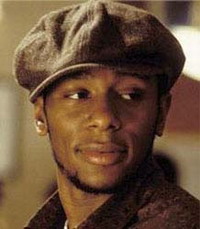Rapper-actor Mos Def sparks protest against prosecution of six black teens
The latest protests in the case of the accused black teenagers known as the Jena Six came not from civil rights leaders Al Sharpton or Jesse Jackson, but from rapper-actor Mos Def.

Mos Def sent out a viral video urging students to walk out of classrooms across the United States this week in protest of the prosecution of the six black teens - initially charged with attempted murder - in the beating of a white classmate in Jena, Louisiana.
He is not the only member of the hip-hop community speaking out in the racially charged case. When he traveled to Jena for a march by thousands of people on the town last month, legendary Down South rapper Bun B was at his side. Hip-hop soul singer Lyfe Jennings was also there, and rappers like Ice Cube and T.I. have lent financial support for protests.
Their actions could reflect a growing political awareness in a genre that has been criticized for glorifying negativity.
"Right now with the situation going on with Jena Six, I got to pay my respects to them. When I was in high school there was a lot of fighting going on; I ain't never really seen nobody get the type of punishment they got," said 17-year-old rapper Soulja Boy, who has the No. 1 song in the U.S. with "Crank Dat (Soulja Boy)."
The Louisiana case began when a black student wanted to sit under a schoolyard tree where white students usually sat. White students then hung nooses from the tree, and racial tensions mounted for months. The six black teens were charged with attempted second-degree murder for allegedly beating a white student bloody and unconscious. The charges have since been reduced.
The case drew national attention. David Bowie donated to the teens' defense fund, and rocker John Mellencamp wrote a song about it.
While hip-hop was a voice of social activism in its earlier days, its recent stars have been more identified with championing materialism and violence. But the hip-hop community has been more vocal about the Jena Six case.
Bakari Kitwana, an author whose books include "The Hip-Hop Generation" and "Why White Kids Love Hip-Hop," says the community has gotten more politically active in recent years, especially after Hurricane Katrina.
"What's different about this moment in terms of hip-hop and political activism is that ... we're to the point where grassroots activists and hip-hop artists are talking with each other about political change," Kitwana said.
The walkout that Mos Def endorsed was planned and executed as a collaborative effort between artists Talib Kweli, M1 of Dead Prez, Common and the activist groups the Malcolm X Grassroots Movement, Sankofa Community Empowerment, Change the Game and the National Hip Hop Political Convention.
Still, many of hip-hop's most famous names have still not lent their voices to the protest, and Kitwana said they should take aim at the larger question of unequal treatment by the criminal justice system.
"If 50 Cent came out on that question - 'Why are we targeting Black and Latino communities for more policing than the other communities?' - that would be profound,"' Kitwana said.
Subscribe to Pravda.Ru Telegram channel, Facebook, RSS!


